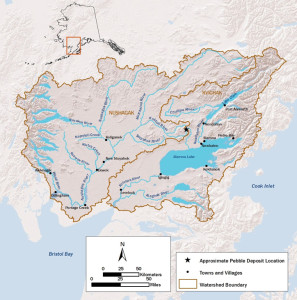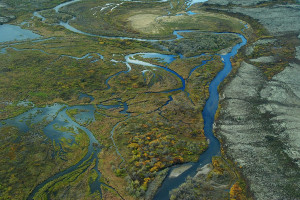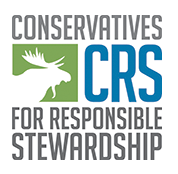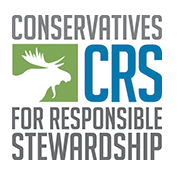The U.S. Environmental Protection Agency (EPA) just announced (02/28/14) its initiation of a process to decide whether to use its veto authority under the Clean Water Act to block construction of the proposed Pebble copper and gold mining project in southeastern Alaska.
Although only the firs t step in the veto process, it shows EPA’s concern about the potential impacts of such a large-scale mine on our nation’s most productive fishery. That concern stems in part from EPA’s recently released Bristol Bay Assessment, which examined the potential impacts of the Pebble Mine on the area’s salmon fishery and determined that the massive mine would have devastating impacts.
t step in the veto process, it shows EPA’s concern about the potential impacts of such a large-scale mine on our nation’s most productive fishery. That concern stems in part from EPA’s recently released Bristol Bay Assessment, which examined the potential impacts of the Pebble Mine on the area’s salmon fishery and determined that the massive mine would have devastating impacts.
EPA estimates that constructing the mine and its surrounding infrastructure would destroy 24 to 94 miles of salmon-supporting streams and 1,300 to 5,350 acres of wetlands, ponds, and lakes. EPA also projects that under routine operations, polluted water from the mine site would adversely impact fish in an additional 13 to 51 miles of streams. The agency also concludes that a major spill would have catastrophic impacts on the fishery.
Back in 2010, CRS and its sister organization (known at the time as Republicans for Environmental Protection) requested that EPA use its authority under section 404 of the Clean Water Act to veto the Pebble Mine. We noted that Bristol Bay, both as an economic engine and a vital natural resource, is a national treasure deserving of our most diligent stewardship.
We believe that building the largest open-pit mine in North America (two miles wide and one-third mile deep), along with giant earthen dams that would hold an estimated 2.5 billion tons of sulfide waste rock and contaminated water, at the headwaters of one of the planet’s most productive fisheries would be reckless and irresponsible–especially give n that the area is seismically active.
n that the area is seismically active.
CRS welcomes this first step by EPA and believes that the facts support a veto.
Advocates of the Pebble Mine will complain that an EPA veto would represent federal government overreach and an encroachment of Alaska’s sovereignty. It would not.
Bristol Bay is a vital national asset. It supplies 40 percent of the fresh seafood caught annually in the United States. It is also home to the world’s largest sockeye salmon fishery, which produces more than $1.5 billion annually in economic value. Every American has a vested interest in safeguarding that fishery, including the streams rivers and wetlands that sustain it.
Permanently blocking the Pebble Mine from going forward is the conservative choice.
It is worth noting that EPA’s veto authority under Section 404 of the Clean Water Act was used most under the Reagan Administration, where the Administration blocked development of a golf course, a shopping mall and a waste recycling facility. Those projects, while problematic, posed nowhere near the large-scale impact and potential devastation that the Pebble Mine does.


